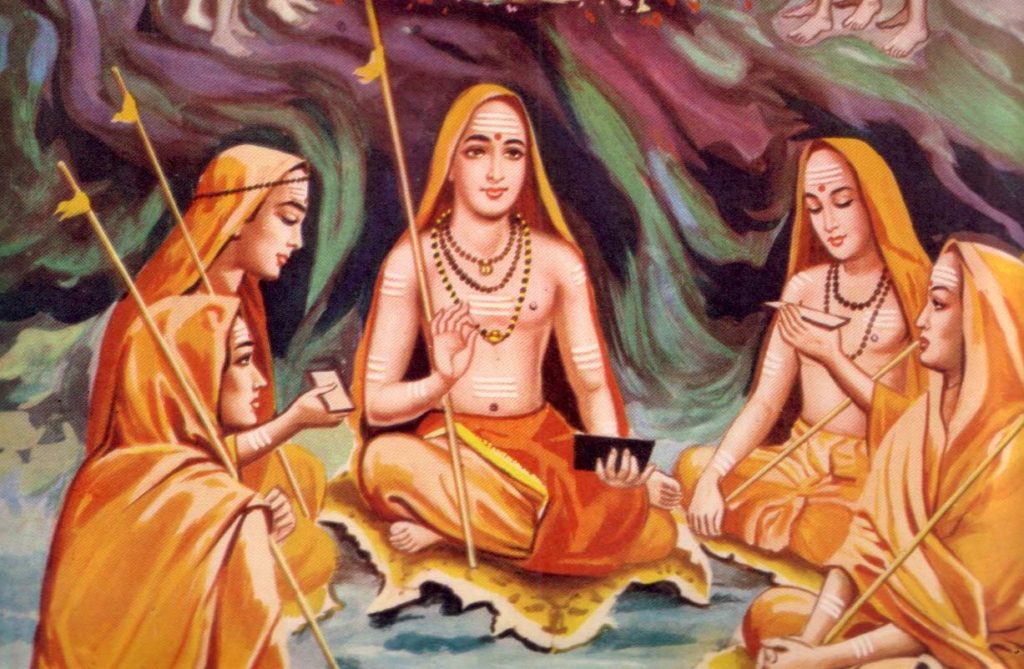Often, the critics of University education believe that our education neither builds values nor develops good citizens. The argument may find some traction since we have completely forgotten our roots, our ancient writings and teachings, and blindly ape the western ways. All arguments invariably veer around employability skills or lack of it and how our ancient wisdom is so ancient that it does not count anymore, to an extent that its very existence is questioned. Admittedly the new-age skills are paramount but are complete skepticism to one’s own culture and ancestral wisdom justified? Modern science depends on evidence. Does it mean non-existence if not supported by evidence?
Deborah Brown, Professor in Philosophy, The University of Queensland, and Brian Key, Professor and Head of Brain Growth and Regeneration Lab, The University of Queensland have this interesting postulation. “Imagine you’re looking for your keys and you think you might have left them on the bookshelf. But when you look, you see nothing but books. A natural conclusion to draw is that the keys are not there.
Now imagine you’re an early 20th century astrophysicist seeking to test the hypothesis that there is a planet (Vulcan) causing perturbations in Mercury’s orbit. You keep looking but find nothing. You conclude that Vulcan does not exist.
Both arguments seem straightforward, and yet in both cases you are relying on an assumption that an absence of evidence can be a good reason for inferring that what you are looking for is just not there”
Our ancestors existed. Their creativity existed. Their science and mathematics existed. Their abodes existed. Their wisdom existed albeit, their ways to reach conclusions of materialistic or spiritual way of life could have been different. Would it be possible to write the Samhitas, Brahmanas, Aranyakas, Upanishads and Vedangas as far back as year 1500 to 500, BCE, if the people living then were not extremely erudite?
Are abstract ideas like the origin and shape of the universe, meaning of time, the concepts of, infinity, infinite God and infinitesimal soul, that were the subject matter of academic discussions during the Vedic period not true anymore? These need great intellect and logic to decipher.
A meaningful film that lost its substance as a consequence of its beautiful narrative, was “The Man who knew infinity” that spoke of Ramanujan. The film has a scene where Ramanujan is walking the beach in Madras with his wife and asks her, what she sees. “Sand” says the pretty girl. Ramanujan then picks up sand in his hand and says, “Imagine if you could look closely, you could see each grain, each particle. You see, there are patterns in everything”
Arithmatic is axiomatic! It is the ultimate truth of everything upon which the entre cosmos and even its chaos is based. Everything is measured within the matrix of time and motion. In the good old days, the essence of research meant approaching an outcome from different perspectives and hence the word re-search!
The dichotomy between western and Indian belief has always been on the inflection point between evidence and existence. While the western world dwells in evidence to acknowledge existence, the Indian system believes in the tenet of existence preceding evidence. In other words, the lack of evidence does not mean lack of existence.
In that difference of thought lies the delta of intuition that is owed to the Indian belief and system. Ramanujan was the first Indian exponent who with his ‘Summation Theory’ proved Infinity. His postulation was acknowledged by the Trinity college. In that, he bridged a major divide between the western thought and Indian belief. That theory of summation found its application in quantum mechanics too, which acknowledges that vacuum is not empty, but seething with activity populated by fleeting electromagnetic waves and particles that pop, in and out of existence all the time.
While we acknowledge the genius of Stephen Hawking, it is beyond an argument that if Aryabhatta invented zero that led us to understanding the complexity of the infinite cosmos, then Stephen Hawking is only an exponent of that ‘existence’. Among several of Hawking’s works, “A brief history of time” and “The theory of everything” has established “Existence” as the predecessor of “Evidence”.
The dominance of English language has however snowed the Indian belief system much under its own pedagogy, that is further buttressed by the infallible argument of the British that leaves all other languages indefensible. To qualify English, the British, perhaps had just one argument, “English puts every other language at an equal disadvantage” While it sends the jury into a tizzy, the affairs of the world carry on.
Goswami Tulasidas, the great Indian poet (1497-1623) wrote a text titled: “Hanumaan Chalisa” in 40 days at Jail of Third Mughal Emperor Jalaluddin Muhammad Akbar. In it and in less than 10 words, he describes the distance between earth and sun and how his deity, Lord Hanuman jumped to gobble the sun. Once again, the meaning and substance is lost in the beauty of the current day rendition of Hanuman Chalisa.
With AI tools coming up and IOT becoming a reality, the time is not far when the human logic and reasoning will be outsourced to machines rendering the humans redundant. The ramifications can be as numbing as disastrous if equally exponential.
The theory of gamification, a potent tool that can be used in teaching, is the new show on the Broadway of our consciousness that will likely put our conscious and conscience too; to sleep. Seldom, neither the current less than imaginary teaching, nor the ineffective assessments, will build logical reasoning or analytical skills so essential, for making a contented life out in the open.
It’s time the education paradigm is reinvented, to make learning fun and meaningful. When teachers use activities that make learning engaging and fun, students are more willing to participate and take risks. Having fun while learning, also helps students retain information better, for the process becomes enjoyable and memorable. But we as teachers, build our own towers of babel. Is it a tall order to ask the universities to reflect back a little?
With that argument, it may be time to pick up sand and look at it closely and perhaps realize that each granule of sand is wrapped in a sheath of water and thereby carries upon its skin an ocean itself.


